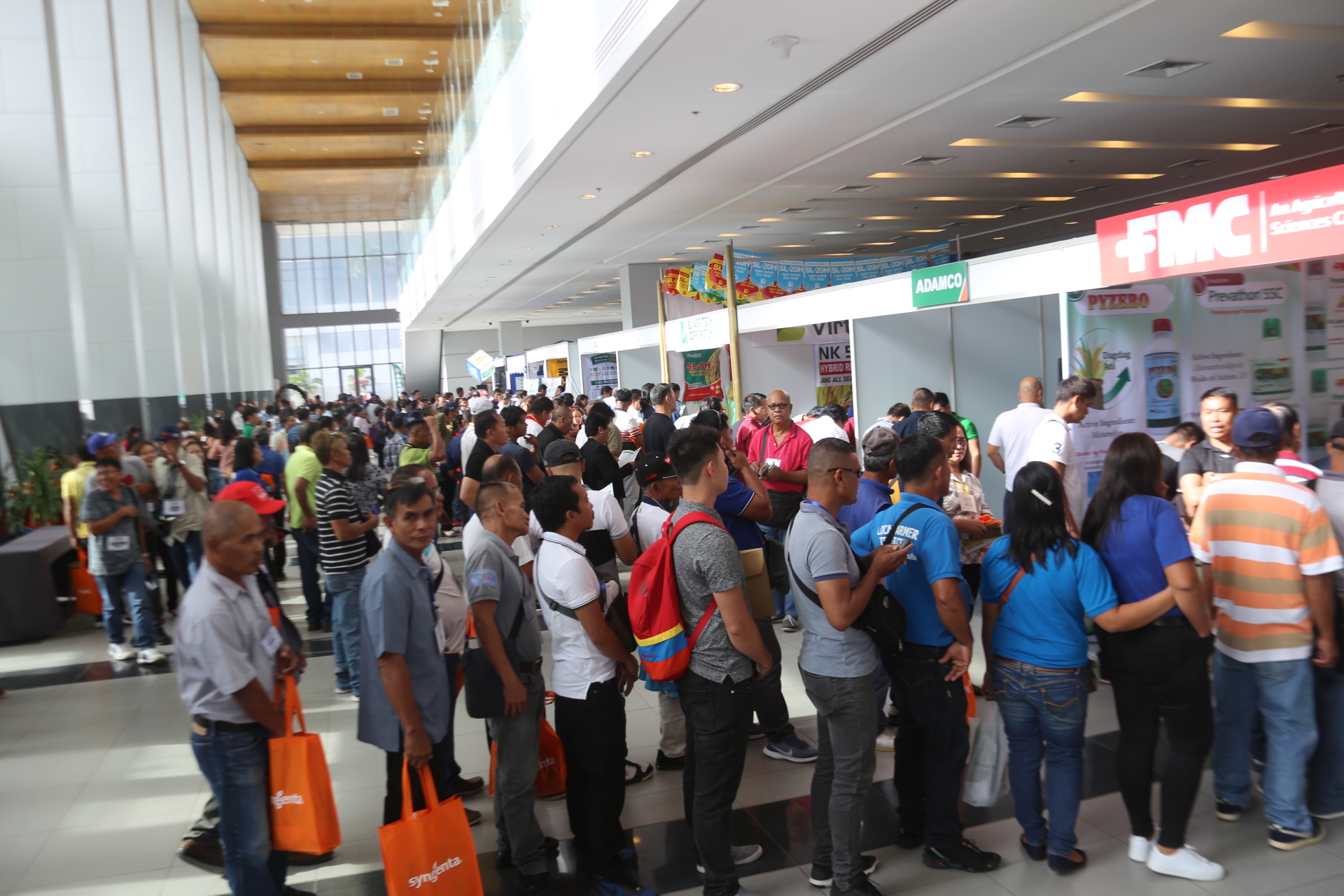
About 1,000 rice stakeholders convened in Iloilo this week to come up with unified, concrete and appropriate policy recommendations and program interventions to address the call of the Department of Agriculture for a “Masaganang Ani at Mataas na Kita”.
Guided by the principle of liberalized rice trade, farmers’ organization, farm input providers, processors, agribusiness players, buyers, agriculturists and extension workers joined the 2019 National Rice Industry Stakeholders Conference held at the Iloilo Convention Center on November 25-26, 2019.
This year’s theme: “Empowering Rice Farmers Organizations Anchored on Value Chain System,” calls for a collaborative effort from the farmers, the local government units (LGUs), state universities and colleges (SUCs), the private sector, and other national government agencies.
“This conference is the culminating activity of the National Rice Awareness Month. Under the umbrella theme: ‘Buy local, Eat local, Support Our Rice Farmers’ we continue to advocate for a safe and nutritious rice, at the same time calling for patriotism by simply supporting local farmers,” Agriculture Assistant Secretary for Operations Andrew B. Villacorta said during the opening ceremony on November 25.
The two-day conference aimed to determine appropriate technology that will contribute to achieving the twin objectives of Ani at Kita, increase access of women and other vulnerable groups to DA’s rice programs and project, and identify potential roles and areas of cooperation.
“Kasama natin ang mga private sector, lahat ng stakeholders para mapag-usapan na rin kung ano pa ang magagawa natin para matulungan ang ating mga farmers at kung paano natin maibabalik ang sigla ng industriya,” Villacorta said.
One of the highlights of the conference is the conduct of the plenary sessions highlighting the DA’s “New Thinking for Agriculture” guided with the eight paradigms of Secretary William D. Dar.
The workshops topics focused on: 1) Modernizing the Local Rice Seed Industry; 2) Competitiveness and Sustainability of Local Rice Production through Clustering, Infrastructure Development and Mechanization; 3) Access and Availability of Agricultural Inputs, Credit, and Insurance for Farmers to Increase Productivity and Profitability; 4) Rural Advisory Services and Rice Technology Promotion and Transfer; 5) Crop and Income Diversification among Farmers’ Cooperatives/ Associations; 6) Cooperative Building and Innovative Marketing and Truthful Labeling; and 7) Roles of Stakeholders specially Women in Pursuing Climate-resilient agriculture.
The outputs of the breakout session will be used to further enhance the Philippine Rice Industry Roadmap (PRR) 2040. ### (Kristel Merle, DA-AFID)













